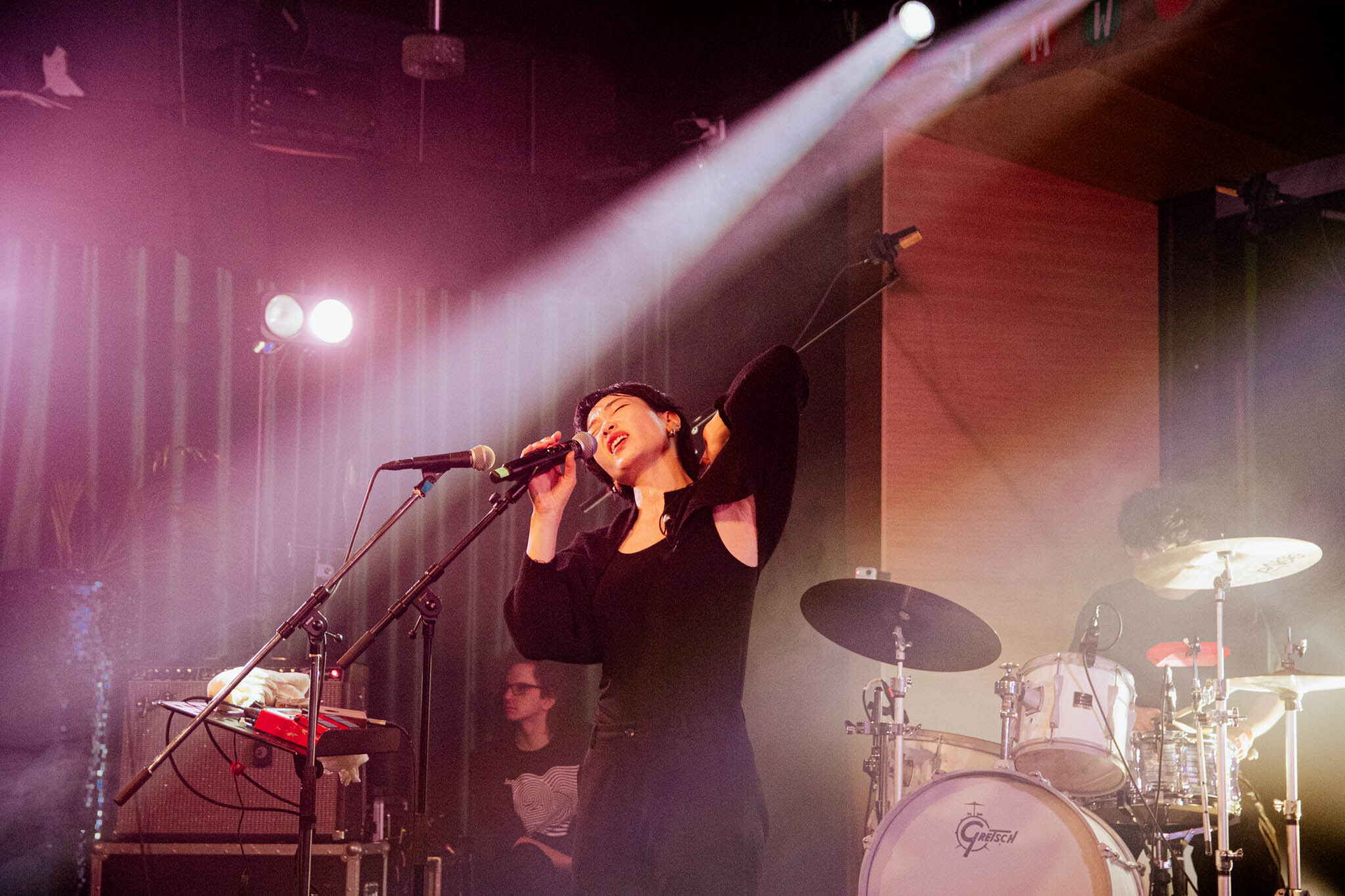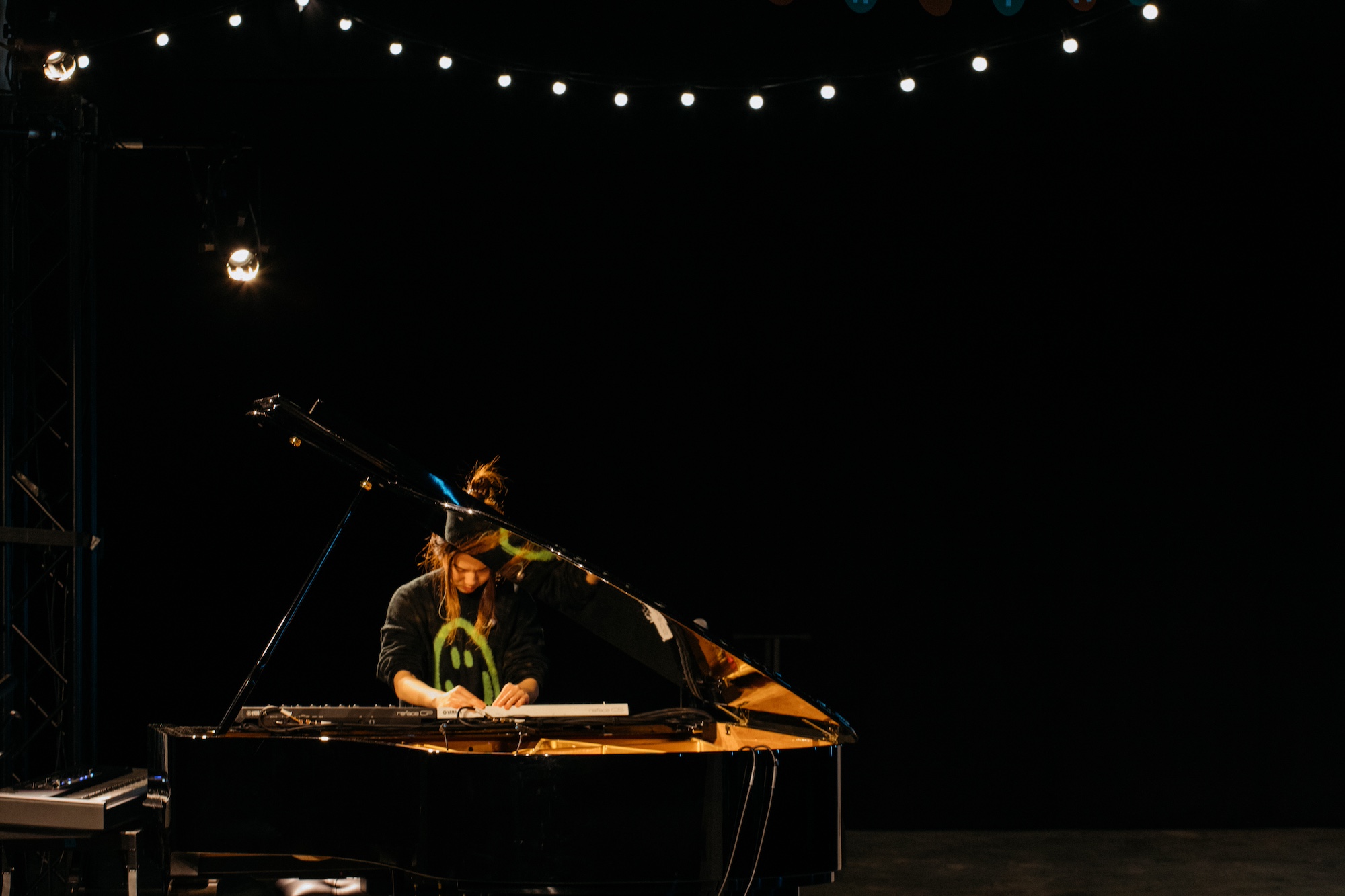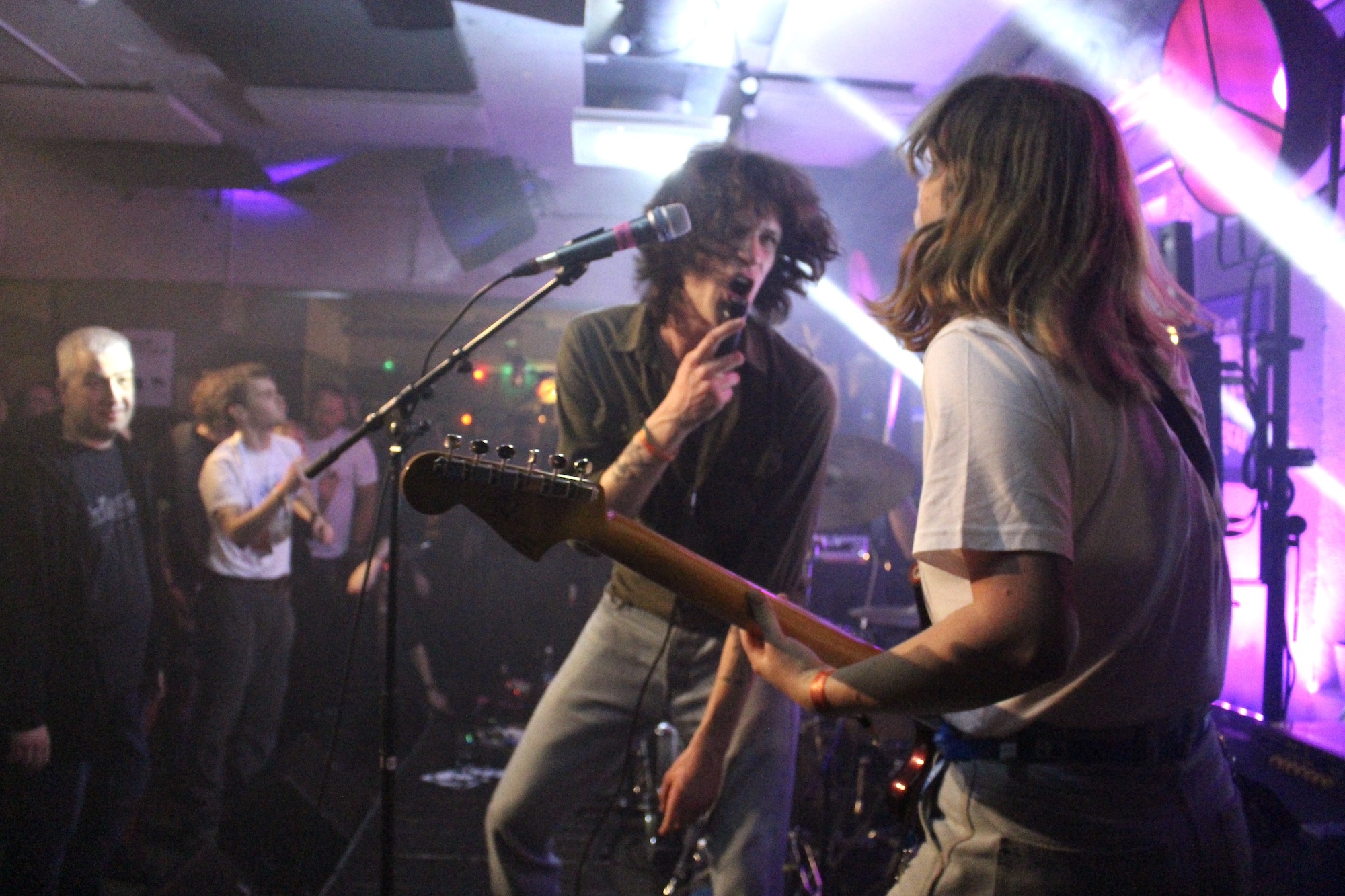There’s an uncertainty in the parched, cold air of the Estonian capital. A slight mist obscures the spires of the Vanalinn district, and the future appears hazy too.
At the opening of the Tallinn Music Week conference, former president of Estonia Toomas Hendrik Ilves laments the end of the “Post-Cold War era,” Russia’s unscathed wrists after the occupation of Crimea, and social media not so much twisting as knotting the arm of democracy. And yet, I find myself laughing frequently. Ilves is genuinely witty. His attitude is also emblematic of the festival as a whole. There may be something looming on the horizon. There may not be. But through sharing ideas we have an opportunity to shape what comes next. As for the present, we must adore it.
Alongside the conference is the Tallinn Music Week festival, a weekend full of various showcases and events, each with a different focus. Eclectic but carefully curated, each abides by its own internal logic. Hopping from venue to venue means taking a hit of anything from traditional Estonian folk to industrial noise pop, a heady concoction which leaves one open to all experiences the festival has to offer. Separating the conference from Telliskivi Creative City, the festival hub, is a walk through the cobbled streets of the Old Town. Pastel-hued facades of pink, blue, and green lie within its medieval walls. I pause, admiring the soft colours at odds with the harsh weather – below freezing here. Thankfully, almost every venue is equipped with a cloakroom, and those that aren’t allow punters to unburden themselves with conveniently placed clothing hooks. It may sound flippant, but this gesture adds to a sense of welcoming and care that pervades the festival at large.
At around 19:55 on the Friday evening, I finish dinner and make my way to Erinevate Tubade Klubi (Club of Different Rooms), the nearest venue to the restaurant. At the top of a colourful stairwell, I am immediately denied entry, stared down by a stone-faced security guard and told to remove my footwear. “Shoes,” he says, pointing at my feet. Things take an upward turn as I am provided with slippers, and I finally proceed through an ornate dining room into what appears to be an overly large living room, with chairs, sofas, and coffee tables littering the space, and a stage at one end.

I sink back into an armchair and watch on as Korean avant-gardist OHELEN appears. It’s the sign of a special festival when one can walk arbitrarily into a venue, and discover artistry of this level. There’s something in OHELEN’s vocal delivery that is intrinsically mesmerising. One can never be sure where it’s going next. She sees the line between singing and performance art as an obstacle that must be climbed over repeatedly, back and forth. It’s a thrill. Backing her is a band contorting Jazz into Dreampop with fuzzy open cymbals, while infectious basslines coerce my slippers into continuous tapping.
Elsewhere I witness Polish quartet O.N.E steer hectic jazz chaos into gentle freeform behind Fotografksia’s monumental pillars of concrete, and Estonian native Manna prowling the stage of F-Hoone, fuelled by dark, pulsating Hyperpop.
Another Tallinn Music Week discovery is Musta Huone (literally Black Room), playing their first gig abroad. “Enjoy the chaos,” mutters frontman Ville-Matti Koskiniemi, before the Finnish band launch into a set of soul-nourishing wall-of-noise goodness. Just when I think they are falling into old shoegaze/grunge tropes, they unleash a saxophone that threatens to splinter the wooden beams of Uus Laine as it screeches into gear. Chaos indeed.

For those more into chin-scratching than head-banging, London-based pianist Belle Chen fuses synthesizers and the grand piano, highlighting the beauty of the forest in a series of classical pieces.

Synthesisers are centre-stage for Vera Vice too, the Estonian pop duo performing twice across the festival. Upon hearing their music earlier in the week at the festival’s Jukebox Jury, Lithuanian radio presenter Ramunas Zilnys opined that they would be a fitting act for an art gallery show, and the second of their performances is exactly that. Surrounded by Opie’s, Haring’s and more at the Pop and Contemporary Art Museum (PoCo), Helen Västrik and Ave Vellesalu-Murd almost blend in; a musical artwork in their right. Though Vera Vice are sonically engaging with icy vocal harmonies, their execution is aloof. Draped in full leopard print and leather, they tinker with small synths to create chimes and minimalist beats, barely registering the audience. It’s a punk attitude best described as ‘cool’. If you don’t like them, they don’t care. Though with pop this bright, you would be foolish not to.
There’s also time to check out Hall, Estonia’s premier submarine factory-turned-techno club (so I am told by Tallinn resident and pop auteur Mart Avi), a cavernous cube with two main rooms. Brickwork is faintly visible through the dry ice as Aiste Regina and Donatas Chipak go back to back in the main room, while Roe Deers stomps on the eardrums of those upstairs as part of a collaboration with the Lithuanian club Opium. Memories of the night prove to be selective, make of that what you will.
Saturday night sees me donning slippers again for a round of Estonian folk, with Duo Mann and Juula up first. The crowd are jigging two by two as future Trad tumbles out of the dual violins. The highlight, however, is Juhan Uppin and his diatonic accordion. Speaking eloquently between each song, he explains one piece as the disco music of the past and the next as being inspired by Super Mario in what is a stunning virtuoso display.
Later, just across the courtyard, ageing one-man tractor beam António Pedro Ribeiro apprehends the Kivi Paber Käärid crowd with an anti-capitalist diatribe, backed by a six-piece band. Together they are Sereias (literally Sirens), and they are difficult to enjoy. This is not due to their quality, which is immense, but because of the sheer intensity with which they perform their brand of semi-improvised post-rock. Art need not be enjoyable to be potent. The Portuguese band are proof of this, leaving the crowd in equal parts depleted and awestruck.

Who better to lift them back up than Tramhaus? The Dutch post-punks come thundering out of the blocks, hurled forward by Jim Luijten’s cacophonic drums, resulting in a frantic set that ends six minutes ahead of time. Frontman Lukas Jansen, Flanked by scintillating shards of guitar, cavorts across the stage. One song devolves into a series of screams from bassist Julia Vroegh as the crowd, a soup bowl of limbs, hair and sweat, enter a frenzied state. “We want more!” they cry out as the era of Tramhaus comes to a close.
On the last day of the festival, I walk past an old church. On the side, facing Pikk Street is an immaculately handcrafted wooden clock. It’s 10:52. I think of Uppin’s accordion. I look up at the church spire, stark against the grey sky, feel the cobbles beneath my feet. Tallinn Music Week is a festival for the future, drawing on artists, ideas, and discussions to forge new pathways ahead. Yet there is one thing it draws from the city itself: hope.

